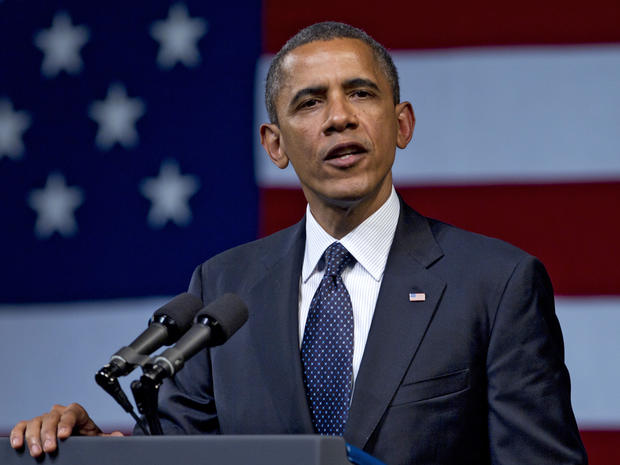New biography details Obama's struggle with racial identity
(CBS News) A new biography excerpted Friday in the Washington Post sheds light on some of President Obama's formative experiences coming to terms with his racial identity as a young man, from his time as a student in Indonesia to his years working as a community activist in Chicago.
"Barack Obama: The Story," by David Maraniss, which comes out June 19, discusses the president's early education in Jakarta as well as his years in Hawaii, in college, and beyond. In Jakarta, Mr. Obama was sometimes jokingly referred to as "Bahasa tarzan" and inspired curiosity for having a white mother.
One friend from Occidental College remembers the young Mr. Obama's explanation of his nickname, Barry, as a sort of protective barrier.
According to the book, "one day, as Moore recalled the scene, he and Obama were 'sitting around, discussing the world . . . and I said, 'Barry Obama? What is that derivative of?' And he told me the story of how his mom had met his father. And I had been to Kenya. . . . It was a bit of serendipity in our lives. We were just kind of chatting. I was heckling a bit. . . . 'Barry Obama, what kind of name is that for a brother?' And he said, 'Well, my real name is Buh-ROCK. Barack Obama.' And I said, 'Well, that's a strong name. Rock, Buh-ROCK.' And we laughed about it.'"
Maraniss writes: "He said, 'I go by Barry so I don't have to explain myself to the world. You're my bro, I can give you the background on it.' But it was basically an accommodation to the Anglo world, Anglo society. You don't want to be singled out, necessarily."
Mr. Obama and Moore also bonded over music, debating the meaning of Bob Marley's album "Survival" and the work of Stevie Wonder.
He later transferred to Columbia University, where he became friends with a group of Pakistani students and spoke about his desire to one day become president, according to one friend interviewed in the book.
Mir Mahboob Mahmood, a student at Columbia Law School and a friend of Mr. Obama's in those days, remembers that the two "had known each other only a few months when Obama posed this question to him: 'Do you think I will be president of the United States?'"
"If America is ready for a black president, you can make it," Mahmoud says he told him.
Throughout these years, the book posits, Mr. Obama often felt he fit in nowhere: At Occidental, he was called an "Oreo" by other black students for his multicultural heritage, one fellow student remembers. Later, while he was living in New York, he expressed to an acquaintance and onetime girlfriend apparent feelings of uncertainty about his place in the world.
"Caught without a class, a structure, or tradition to support me, in a sense the choice to take a different path is made for me . . . the only way to assuage my feelings of isolation are to absorb all the traditions [of all the] classes; make them mine, me theirs," he wrote.
Another ex-girlfriend, who was white, encouraged his search for identity -- and urged him to "go black."
Maraniss writes: "She realized that 'in his own quest to resolve his ambivalence about black and white, it became very, very clear to me that he needed to go black. I told him that. I think he felt very encouraged by my absolute conviction that his future lay down the road with a black woman. He doubted there were any black women he would feel truly comfortable with. I would tell him, 'No, she is out there.'"
Ultimately, Mr. Obama moved to Chicago, where he took a job in community organizing and became immersed in the urban black community there. Still, he maintained what is cast as a few characteristic reservations.
"In Chicago, Obama was finding -- and being found," Maraniss writes. "Even as he was insinuating himself into the South Side culture and finding comfort in the black world there, Obama remained the participant observer. His perspective was universal, removed, not racial. He had reservations about people of every race when it came to tribal thinking."

